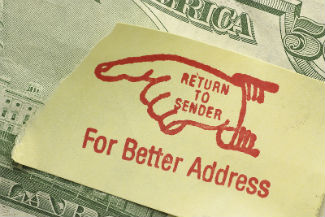Shortly after Two Kids and A Fish left the marital home it became clear that she needed to keep her new address secret. It would be like she was hiding from her ex except that she still had to parent with him. Here’s Two Kids and a Fish:
I have an order of protected address so he can’t come to the house. He doesn’t know where we live.
A lot of it had to do with his aggressive behavior, especially toward my oldest. It was the way he treated her and the things he said. Towards the end, it got really bad and he threw things at her. I don’t understand it and I don’t think I ever will. I don’t know why. I don’t have any answers.
 A month after we moved out she told me me things that had happened that I never knew, like he would throw her out of the house when I would go out of town, because I have to travel for my job. He’d take away her key to the house and she’d end up sleeping in her car.
A month after we moved out she told me me things that had happened that I never knew, like he would throw her out of the house when I would go out of town, because I have to travel for my job. He’d take away her key to the house and she’d end up sleeping in her car.
I don’t get it. How can you throw your own child out of the house? She was probably eighteen at the time.
I had to explain to my youngest that she couldn’t tell her dad where we lived. I told her that because of the way he treated me and her sister it was my responsibility to keep all three of us safe. And it was my responsibility to make sure that we would be transitioning to a peaceful home where we weren’t going have to worry about anyone showing up and bringing trouble and arguing and negativity and drama to our new house.
She understood that right away. She got that and I think she really understood that her sister was very scared of her dad. She’s never questioned that.
So I do see my ex every time I pick up my youngest up after her visitation is done. Sometimes I stay outside the house. Sometimes I do have to go in to help her with her bags—her book bag, her overnight bag, her sports bag. But because of the protected address he can’t bring her home.
When I do go in, he and I don’t speak. He won’t even look at me. It’s ridiculous. He will use our daughter as a messenger and I will be standing right there.
We do communicate via email and text but email for me is the best because that allows me to properly document everything and easily forward to my attorneys if necessary, and there have been cases where I had to.
I have sole legal custody so all school correspondence comes to me. He cannot get any of that and the school knows that. I use my mother’s address as my permanent address and everything goes there, my banking, my credit cards, everything. I use my mother’s address because I don’t want any mistakes.
We were together for so long that he knows where my mother lives. It’s no secret. But he doesn’t know my address.
The Divorce Coach Says
My first exposure to address confidentiality programs came many years ago when I was working in operations for a financial institution. We’d just received notice from a state about their program and it meant tweaking our change of address confirmation process. For fraud prevention, we’d send change of address confirmations to both the new and old address of record and the confirmation to the old address included details of the new address. This was before everyone had home computers and the Internet. I don’t recall exactly how we handled it but presumably we dropped including the new address.
Now with the ever-expanding information on the internet, keeping your physical location secret becomes increasingly difficult and requires constant vigilance to avoid inadvertently making the information available. And as you’ll hear, it is a heavy burden for young children to keep one of their homes hidden from a parent.
You can find out if your state has an address confidentiality program by visiting your state’s website – typically it would be your state’s name followed by .gov. And if you don’t have an address that you can use, such as your mom’s, some states provide a confidential address service.
If you’ve used a confidential address what are the pitfalls and drawbacks? Is it sufficient to have a P.O. Box?
Photo credit: © 2012 Jupiter Images Corporation